The European Commission has approved, under EU State aid rules, a €80 millionDutch measure to support Djewels B.V., a subsidiary of the hydrogen company HyCC B.V., in the demonstration of an innovative renewable hydrogen production technology. The measure will contribute to the development of renewable hydrogen production in line with the objectives of the EU Hydrogen Strategy and the European Green Deal.
The Dutch measure
The Netherlands notified to the Commission its plans to support the construction and operation over three years of a demonstration project for the production of renewable hydrogen.
The project supported under the measure is a first of its kind in the EU and represents a significant innovation that goes well beyond the state of the art. In particular, the project aims at demonstrating the feasibility of producing renewable hydrogen with an alkaline electrolyser with high current density electrodes, high-pressure hydrogen output and a small spatial footprint. The innovative electrolyser will have a a capacity of 20 MW.
The beneficiary of the measure, Djewels, will own and operate the hydrogen production facility. The aid will take the form of a direct grant of €80 million, covering the expected funding gap of the project. As the actual funding gap of the project will depend on market developments, the measure foresees that, if the project turns out to be very successful, generating extra net revenues, the beneficiary will return to the Netherlands part of these extra revenues (‘clawback mechanism’). Moreover, the beneficiary will disseminate the technical know-how gained as a result of the project.
The construction of the electrolyser is expected to start in 2024, with the project expected to be operational as of 2027.
The Commission’s assessment
The Commission assessed the measure under EU State aid rules, in particular Article 107(3)(c) of the Treaty on the Functioning of the EU, which enables Member States to support the development of certain economic activities subject to certain conditions, and the 2022 Guidelines on State aid for climate, environmental protection and energy (‘CEEAG’).
The Commission found that:
- The measure facilitates the development of an economic activity, namely the demonstration of an innovative technology to produce renewable hydrogen. At the same time, it supports the objectives of key EU policy initiatives, such as the European Green Deal and the EU Hydrogen Strategy.
- The aid has an ‘incentive effect’, as the beneficiary would not carry out the project without the public support.
- The measure is necessary and appropriate to support the demonstration project. In addition, aid is proportionate, as it does not exceed the expected funding gap of the project. Moreover, a clawback mechanism provides safeguards against overcompensation.
- The measure has a limited impact on competition and trade.In particular, the beneficiary will be required to disseminate the learnings from the project.
On this basis, the Commission approved the Dutch measure under EU State aid rules (CEEAG).
Source: https://ec.europa.eu/commission/presscorner/detail/en/ip_24_4024
